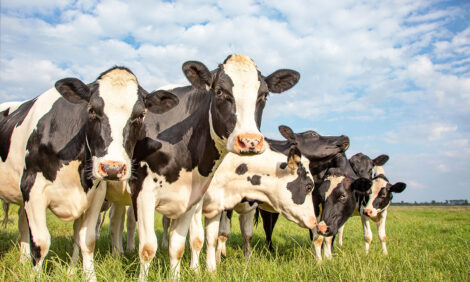



US Organic Dairy Standards Misleading, Expert Claims
US - Some industry standards on dairy products may be misleading consumers, a US organics expert claims.
Craig Minowa, a spokesperson for the Organic Consumers Association (OCA), told DairyReporter.com that failings in the US Department of Agriculture's (USDA) organic certification are being exploited by some dairy groups keen to profit at the consumer's expense.
"The failure is a combination of both loopholes in the USDA organic standards and more unscrupulous processors wishing to profit from them," Minowa said.
The loopholes could damage the reputation of US organic dairy products both domestically and abroad, with processors increasingly keen to use organic certification to attract the ethically- and environmentally-concerned consumer.
The OCA campaign highlights the growing need for strong organic standards in the country, as the industry continues to expand rapidly. It also highlights the difference in organic standards between the US and Europe, one that could affect trade.
Minowa said that there was a particularly big problem within the organic dairy industry over deceptive standards, with many consumers more willing to accept that goods like milk were totally organic.
In reality he added, this is not always the case, with the manner in which some dairy herds were being stored and milked contravening expected behaviour for organic production.
He pointed to the alleged practice of storing cows under cramped factory farm conditions, which still retained certification on the grounds that they were being given organic feed.
Aurora Organic Dairy, which has been singled out by groups like the OCA, rejected the allegations. The company has been singled out by the OCA as one of a number of national major organic dairy companies allegedly breaching organic standards.
Clark Driftmier, senior vice president of marketing for Aurora, was keen to stress that the company fulfilled its responsibilities in organic production and was not misleading customers, which include some leading retailers.
"Most definitions of 'factory farming' involve animals that are confined or live indoors," he said. "Aurora Organic Dairy's organic dairy cows are not confined."
He added that the company was also in full compliance with USDA organic standards and was in favour of proposed restrictions to tighten industry standards.
"Aurora Organic Dairy strongly supports a stricter USDA pasture rule for organic dairy, requiring that lactating cows spend at least 120 days on pasture during the growing season," Driftmier said.
US sales of organic food and beverages have grown from $1bn (€744m) in 1990 to nearly $17bn (€12.6bn) in 2006. Organic food sales are projected to reach $23.8bn (€17bn) for 2010, according to figures from the Agricultural Marketing Service (AMS) and the USDA.
The organic industry is viewed as the fastest growing sector of agriculture, currently representing nearly 3 per cent of overall food and beverage sales, according to government statistics. Since 1990, organic retail sales have historically demonstrated a growth rate between 20 to 24 per cent each year including a 22 per cent increase in 2006.
Though the issue is likely to remain ongoing within the US, a spokesperson for the UK organic body the Soil Association told DairyReporter.com that consumers within both the UK and the EU could rest assured over the quality and standards of organic dairy.
Any products claiming to be organically certified from outside the EU, are additionally required to adhere to European rules.
The Soil Association added that dairy exports wishing to be sold as organic in the UK had to comply with the Department for Environment, Food and Rural Affairs' standards.
TheCattleSite News Desk


